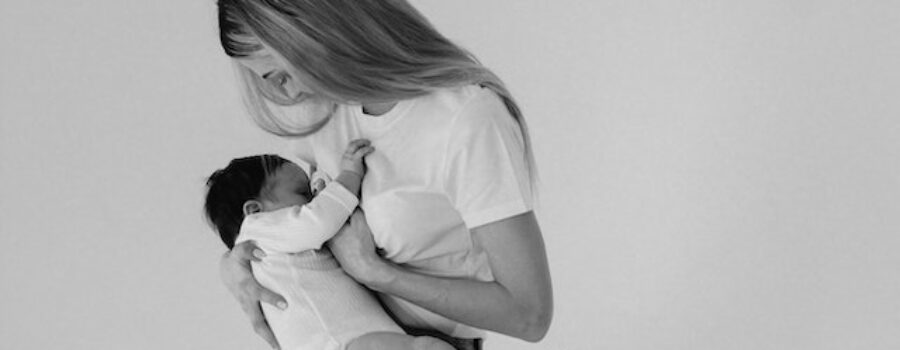One day I had a patient with an emergency walk in to my clinic with her newborn. The mother was in agony over an infected tooth. She had a broken filling during her pregnancy, and she waited until after the baby was born to address the tooth. Unfortunately, the tooth became infected so we decided to have the tooth removed.
Many times we weigh the pros and cons of performing dental work during a pregnancy or breastfeeding. There are times when it is absolutely necessary to intervene and perform dental procedures. Other times, it may be best to wait.
It’s important to be upfront with your dentist regarding your concerns. Let them know that you are breastfeeding, and the age of your child. When it is mutually decided that work needs to be done there should be a dialogue regarding breastfeeding safety. Especially since many pharmaceuticals may pass through the milk to the baby.
Here are the top reasons to have dental work during your breastfeeding years.
1. A simple dental filling or restoration may prevent the tooth from getting infected.
2. An infected tooth will cause major problems for the mother and baby.
3. Gum disease is a chronic disease that will negatively affect the health of the mother and the baby.
As you can see, there truly aren’t too many reasons you’d want to wait to complete your dental treatment. Unless you have an elective procedure such as veneers or asymptomatic wisdom teeth removal. As a side note, you should check out my blog post on why you should keep your wisdom teeth! Click here for that post.
You should always be concerned with any pharmaceutical that you take into your body and its effects on your breastfeeding. I’ve listed the most common drugs you may be prescribed by your dentist.
1. Local anesthetic (Many different types)
2. Antibiotic
3. Pain medication
4. Steroids*
Let’s hear from another professional:
Mariah is a Birth Doula through DONA International and certified through ProDoula. She is also a Certified Postpartum and Infant Care Doula through ProDoula, and an IBCLC; the gold standard of lactation professionals. You’ll find Mariah’s take below:
Ah, the Dentist. Either that thought alone made you cringe, or you just remembered to make your next appointment for your cleaning. No matter which group you belong to, dental procedures are sometimes unavoidable and 100% necessary for your health. For breastfeeding mothers, needing a dental procedure requiring pain medication or anesthesia may be overwhelming. Fortunately, preparing for these procedures from a breastfeeding standpoint doesn’t have to be hard or stressful. Now with that said, there are many conflicting pieces of advice that are often given to breastfeeding mothers surrounding anesthesia and/or pain medication. In fact, in my professional career as Owner, Birth & Postpartum Doula and Certified Lactation Counselor of The Omaha Baby Nest, I’ve been mind boggled at the advice some women are given.
So, should you pump and dump? Do you need to wait a certain period of time before nursing your baby? Will you need to find donor milk or formula in the interim? Here is what the evidence says and some simple stress-free steps to prepare.
1) Ask your dentist ahead of time for a list of medications you will be given so you can confirm compatibility with breastfeeding.
Infantrisk.com is a great resource outside of trusted lactation professionals and your dentist.
2) Chances are, there will always be a drug option that is compatible with breastfeeding that your Dentist can use for the procedure. In the rare event there is not, speak with your dentist and pharmacist about something called “half life.” This determines how long the drug is in your system, so you can determine the ideal time to resume feeding your baby breastmilk from either breast or bottle.
3) Preparing to store milk prior to dental work might be easier than you think! Even if your dentist plans to use medications that are known to be compatible with breastfeeding, you may still have reservations about feeding your baby that milk (which is totally your personal preference). In other cases, you may have a period of time after the procedure when you are feeling sore and tired and would rather have a family member give a bottle. In either case, having milk prepared and stored ahead of time may give you some comfort before a procedure in which you may be feeling some discomfort.
*Here are the recommended storage guidelines for storing pumped or expressed breastmilk taken from The Academy Of Breastfeeding Medicine.
ROOM TEMPERATURE: 4 hours is best. Up to 8 hours is acceptable under clean conditions.
REFRIGERATED MILK: 4 days optimal. 5-8 days under clean conditions.
FREEZER: 6 months optimal. 12 months acceptable.
- If your milk removal after a procedure will be primarily from a pump, review your pump’s manual for cleaning instructions for your pump parts.
4) Something to keep in mind if you choose to store milk before or after the procedure is that many babies will take about 1-1.5 oz per every hour. That’s not to say they should get a 1 ounce bottle every hour, but more likely, they will demand 2-4 oz every 2-3 hours. You know your baby best. These are the amounts that work well for many moms, but trust your instincts on how much to feed your baby. When in doubt, reach out for lactation help from a professional, or your pediatrician for more guidance.
5) Remember to take care of your breasts after the procedure. If you received anesthesia or are on narcotics for pain medication, it may be a good idea to set alarms to pump or nurse. Removing milk often and on a similar schedule to your daily life is a good way to prevent plugged ducts and painful engorgement symptoms.
6) Stress and pain can block milk making hormones. Prolactin and oxytocin are two hormones responsible for milk making. Oxytocin is the “feel good” hormone. This is released when your baby feeds at the breast, you snuggle them, you look lovingly into their eyes while feeding a bottle, or think of happy things in your life. Pain and stress of the procedure may temporarily affect your milk output, but should be maintained with frequent milk removal, calorie intake, and hydration. Keep in mind that your pump output may not be a good indicator of your milk supply on its own. Should you get concerned about milk supply, doing a weighted feed with a lactation specialist or your pediatrician to see how much milk baby is transferring is a great first step. Signs that may be helpful to validate enough milk transfer are ensuring wet and dirty diaper outputs. If you determine your supply was affected and you run out of stored milk, banked donor milk or formula would be the best ways to keep baby fed, temporarily.
So whether your next trip to the dentist is for a routine cleaning or a more advanced dental procedure, know that as a breastfeeding mother, your feeding routine can most likely stay the same as before the procedure. Should you need to adjust your normal feeding routine for whatever reason, use these steps to help you make a plan. Dental care is vital to your health, and breastfeeding should not be a reason to put it off. So rest assured, using these steps will keep your smiles bright.



